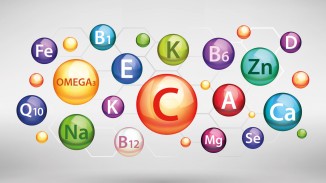In Clinical
Let’s get clinical. Follow the links below to find out more about the latest clinical insight in community pharmacy.Bookmark
Learning objectives
After reading this feature, you should be able to:
- Identify those patient groups that could have nutrient shortfalls
- Educate the public about optimum nutrient intakes
- Explain the latest thinking on CBD oil.
“Health consciousness is continuing to rise,” says Dr Nisa Aslam of the Health & Food Supplements Information Service (HSIS), with more people taking supplements for general health and perceived micronutrient deficiency.
“Young people are increasingly taking a supplement, a sensible choice given that shortfalls in nutrient intake are often most acute in the late teen to young adult demographic,” she says.
“However, sales in the vitamin and mineral supplements market in the over-50s also grew by 1.7 per cent over 2018-19, with the ageing UK population and falling birth rates supporting sales among older consumers, particularly those supporting joint and bone health,” she continues.
The market for multivitamins is 40 per cent of the whole VMS market, suggesting that people are wanting to top up their diets.
Dietary shortfalls
Despite the move towards health consciousness, the UK population continues to fall short in their nutrient intakes. A report conducted by HSIS last year (Immune Health: Micronutrients Under the Microscope) found that intakes of immune-supporting nutrients, including vitamin A, vitamin D, B vitamins and iron, have declined over the past decade.
Folate deficiency is a particular problem for women. National Diet and Nutrition Survey (NDNS) data reveals that the proportion of women aged between 19-64 years not achieving the lower reference nutrient intake (LRNI) for folate has more than doubled to 7 per cent over the course of the NDNS rolling programme.
As well as being highly important for foetal health, folate, along with vitamins B6 and B12, is involved in DNA and RNA synthesis in all cells, including immune cells.
NDNS findings also show lower than recommended intakes of oily fish, iron and vitamin D. Mean consumption of oily fish was well below the recommended 140g per week in all age groups. Similarly, mean iron intakes were below the recommendation among girls and women: 46 per cent of girls aged 11 to 18 years and 23 per cent of women had low intakes.
Although vitamin D uptake has improved slightly – NDNS data shows that since 2008 there has been a small improvement in vitamin D status in younger children (aged four to 10 years) and older adults (aged 65 and older) – a low vitamin status remains among all age groups. As the report specifies, “this has implications for bone health, including increased risk of rickets and osteomalacia”.
The Government’s recommendation that everyone should consider taking a daily vitamin D supplement of 10mcg during the winter months is largely not observed, it would seem. Just under 40 per cent of British women never take a vitamin D supplement, according to HSIS findings.
This could have severe consequences, as nutritionist Pamela Mason explains. “Once our vitamin D status dips below 25nmol/L we risk having a long-term, negative impact on our bones and muscles,” she says.
Nisa Aslam believes that lack of awareness about the vitamin remains a significant problem. “Vitamin D uptake has grown but remains quite poor,” she says. “Messaging may not be penetrating the public consciousness as well as it might. The belief that sunlight can provide all that is needed may still be quite strong.”
Plant-based popular
The increasing popularity for plant-based diets could explain some of these nutrient deficiencies. It is estimated that vegans and vegetarians will make up a quarter of the UK’s population by 2025, according to a recent Sainsbury’s Future of Food report.
Last year HSIS published a report entitled Plant Based Diets: Nutritional Challenges and Future Health Worries – An A-Z Analysis, which reviewed data from 101 published studies, comprising a total of 17,262 people. The report looked at the growing trend for plant-based diets and how this dietary choice is impacting nutrient intakes.
The results showed that people who adopt plant-based diets often don’t do sufficient research, which could explain the low nutrient intakes seen across many international dietary surveys. The HSIS findings revealed that a quarter of vegans and vegetarians say they had been diagnosed with a nutrient deficiency at some stage, mostly related to iron or vitamin D.
“Plant-based diets can be healthy in terms of issues like cardiovascular health, but such diets can lead to shortfalls in intakes of micronutrients such as iron, zinc, iodine, selenium, vitamin B12 and vitamin D,” comments Aslam, who co-authored the report. “An all-round multivitamin-mineral product is a wise choice when following a plant-based diet.
“Awareness of nutrient shortfalls is very low, with HSIS research showing that fewer than a fifth of plant-based adherents identify vitamin B12 as an issue, with no-one name-checking vitamin D – despite the fact that nearly all major dietary sources of the ‘sunshine vitamin’ are animal or fish based. Awareness of other nutrients that are hard to obtain on plant-based diets – including zinc, iodine and selenium – is almost non-existent.”
Co-author, nutritionist and adviser to the HSIS, Emma Derbyshire, also warned about the lack of oily fish in a plant-based diet. “For those who avoid fish, an algae-based omega-3 supplement is recommended since the particular omega-3 fats found in oily fish – EPA (eicosapentaenoic acid) and DHA (docosahexaenoic acid) don’t exist in plant foods.”
Probiotics and prebiotics are another area of supplementation with scope for creating greater consumer understanding. In a HSIS survey conducted this year, one-fifth of respondents were not aware of probiotic and prebiotic supplements. Of those who had heard of these supplements, many did not know how they could benefit health.
“Prebiotics work with probiotics in that the former feed on the healthy bacteria in probiotics to create long chain fatty acids, which act as messengers from the gut to the rest of the body,” says Aslam. “Given the increasing evidence for the links between gut health and the health of other parts of the body – lungs, brain, immune system, eyes, skin, heart – such products may be good for overall health as well as gut health.”
Impressive vital statistics
Measured by revenue, the UK vitamin and supplement market is worth £1.4bn, according to research analyst IBISWorld, and is expected to increase by 29.9 per cent this year. On average, the market grew 15.5 per cent per annum between 2017 and 2022.
Guiding consumers
The lack of knowledge about optimum nutrient intake means it can be hard for consumers to know where to begin making the right choices.
“Pharmacy teams can ask customers a range of questions to understand more about their current diet, lifestyle and any risks they may have for nutritional deficiencies. They can then make appropriate recommendations,” suggests Deborah Evans, PAGB adviser and community pharmacist.
“Being knowledgeable enables pharmacists and their teams to help consumers. This starts with asking the right questions, getting as much of a medical history as possible and helping the individual make the right choices.
“If someone is displaying symptoms that may be attributable to a deficiency, then it could be advisable to suggest having a blood test before making a decision. For example, peripheral neuropathy may have a range of causes including vitamin B12 deficiency, diabetes, certain infections, underactive thyroid gland and excessive drinking.
Dr Aslam suggests a few key questions should be addressed such as:
- What is the age and overall health of the person?
- Are they taking any other supplements?
- What does the customer want to achieve – good overall health or good health of one part of the body (such as joints and bones or the gut)?
- Are they taking any medication?
- Do they have any long-term health issues?
When helping a customer select a particular product it is important to read the label for ingredients and dosage, she says. “For an all-round multivitamin and multimineral supplement, look at the range of micronutrients in the product and the proportion of the NRV (nutrient reference value) supplied for each nutrient.
“Make sure there are no allergy concerns. Check that the product is both suitable and most efficacious for the age and health status of the person. Follow the instructions on the packaging. It is important to discuss any medical conditions and prescription medicines being taken.”
For those on a more limited budget, Aslam recommends opting for one key product. “In most cases, advise customers to go for one all-round vitamin-mineral supplement. There is no need to go for the most expensive brand, but make sure the product contains the recommended amount of vitamin D.”
To help simplify choice, Deborah Evans says it helps “to get to know one or two ranges very well and display these in a way that makes sense to the consumer – for example, bone health, digestive health, multivitamins or immune support”.
Always choose a reputable supplier and a company that provides training and resources, she says. “Some supplements can interact with medicines – so ensure you and your team are aware of these. Certain vitamins, especially those that are fat-soluble such as A and D, can be harmful in high doses. Consumers should also be advised about the benefits of a varied plant-rich diet that also supports the gut microbiome.”
Sponsored
 Sponsored education
Sponsored education
A different approach to pain
Complete this interactive video to rethink your pain recommendations and ensure you offer every customer the most appropriate advice
 Sponsored education
Sponsored education
Managing fever in children
Get to grips with the current guidance on managing fever in children and how antipyretics can help, and discover products you can recommend.


Record my learning outcomes